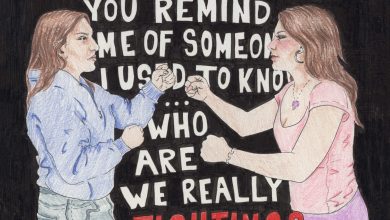The Revolution Will Be Accessible: Academic Elitism in Leftist Critique
The Women’s March on Washington, and all its Sister Marches in cities across the US, has decisively been declared the largest demonstration in American history, with over 3 million people taking to the streets. On their website, the organizers of the March clearly state that it was “not a protest. The Women’s March [was] a celebration of human rights.” In an interview with FEM earlier this month, the PR representative for Women’s March LA, Aly Nagel, stressed that the March would be about inclusivity, given that Donald Trump’s policies affect a broad spectrum of people.
However, many women of color and intersectional feminists had mixed feelings about the March, myself included. Its undue emphasis on “unity” and “sisterhood” left many women of color feeling alienated and outraged; in her op-ed piece for Colorlines, Jamilah Lemieux writes that she felt like she was being asked to, “feign solidarity with women who by and large didn’t have my back prior to November.” The irony of white women calling for unity when they have historically gained their privileges on the backs of women of color hit us, hard.
So Saturday was a historic day for many people, but also a painful one for a lot of women of color who finally saw what it looked like when people care. Many of them rightfully pointed out how yesterday, many white women did for the first time what women of color had been doing for decades – under the Obama presidency, under Bush, under Clinton. Not to mention that women of color have been arrested, beaten, and killed for protesting peacefully, but not one person from the largely white and female crowd was arrested in any city.
Yet despite the validity of the critiques levelled at the March, their dismissive nature was concerning. Time and time again, the leftist activist community has displayed the tendency to dismiss “imperfect” feminism as not worth our time. Many people, such as Lemieux, chose not to attend. But we don’t realize that being a “correct” feminist takes a sizeable amount of privilege. To be able to understand and use terms like “intersectionality” or “neoliberalism,” one usually needs a college education, or at least the access to intellectual resources (not to mention the time and energy required to read, digest, and implement those theories).
In the face of all this, we continue write off people who do not use all the correct phrases and buzzwords, regardless of whether or not they are well-intentioned. In an article for Everyday Feminism, trans activist Kai Cheong Thom writes that the “assumption that everyone can step into social justice conversations from the same starting point” is unrealistic, even oppressive.
The crowd at the Women’s March were indeed all at different points in their feminisms. The dominant brand of feminism being displayed was definitely “white feminism” – feminism that is largely non-intersectional and does not consider the links between sexism, racism, classism, imperialism, and all the other –isms. Was this alienating? Yes. Was it frustrating? Definitely yes. But was it cause to dismiss the march itself and simply not attend? Not at all.
Before I go on, I want to state that I fully believe that it is not the job of women of color to educate white women. It is not the job of marginalized people to educate their oppressors. I am not trying to argue that all women of color should have shown up to the March for the sole purpose of educating the white women there. I fully support every single person who stayed home simply to save themselves mental anguish. What I am saying, however, is that we need to think about our tendency to dismiss new feminists when their feminisms aren’t up to our “standards,” and how those “standards” are a result of great privilege.
This issue is much larger than the Women’s March, but the March brought these concerns to the fore again. How can we express righteous anger without pushing away people who may only be trying to learn? I want to stress here that there is a difference between making your activism accessible and making it comfortable. The former is important, the latter is absolutely not. I am not calling on women of color to “calm down” or educate, I am calling on college-educated activists especially to check their privilege when they critique other people’s feminisms.
The reason I use the Women’s March as a reference in this piece is that it was the first time a lot of brand-new feminists took to the streets. They have a lot to learn – about intersectionality, about neoliberalism, about alternative forms of justice. A lot of them have never been exposed to these counter-narratives. The March was very deserving of critique, but it was an opportunity for intersectional feminists of color who were willing and able to “call in” these people, to expose them to ideas that they maybe had not thought of before.
But the problems with academic elitism go beyond just the older white women at the Women’s March, although ageism remains a huge unspoken problem in the activist community. Academic elitism simply hurts marginalized people more than it helps them, especially those who tend to have starkly less access to educational resources, not to mention the time to use them. They might have experienced oppression, but if they do not discuss their pain with the “right” terms, they are turned away or harshly “called out.” In another article for Everyday Feminism, Hari Ziyad discusses how people in the activist community will too often use newly-learned concepts to immediately critique other people: “Using newly learned language immediately to demonize others may indicate a desire to use knowledge to prove superiority, rather than to grow in your work.” As activists, we are helping no one when we do this.
There are so many factors that affect whether or not a well-intentioned person knows the up-to-date politically correct terminology; as I mentioned before, age is a huge factor. In her article, Kai Cheong Thom addresses the issue. “Something I’ve noticed is that activist communities tend to be concentrated within an age range of 5-7 years,” she writes, “meaning that there is very little intergenerational overlap between them.” Maybe it’s because fewer baby boomers and Gen X’ers attended college than millennials. Maybe it’s because social media – not just Facebook, but Tumblr, Twitter, and Instagram – has been where young people discussed the importance of intersectionality. Maybe it’s because programs like Gender Studies have only arisen very recently in a select few universities. Maybe it’s because older women tend to be trapped in a system that forces them into doing hours of unpaid physical and emotional labor in the household, or working multiple jobs, leaving them too physically and mentally exhausted to stay on top of the latest activist trends and politically correct language.
We are often tempted to dismiss new feminists as white feminists or “bad” feminists, not realizing that we come from a place of great privilege and have also grown from a certain starting point. The March was a starting point for many, and that is a good thing. It is of course unfortunate and saddening that it took something like the election of Donald Trump to get many white women to “wake up,” and as I mentioned before, there are layers of irony of white women calling for “unity.” And there are also many, many times when the label “white feminist” is deserved and appropriate. But my point is that we do not needlessly need to undermine the intentions of the millions of women who showed up and marched.
I want to stress my point from earlier again: there is a difference between being “nice” and being accessible. We do not need to be nice. We have the right to be angry. We have the right to critique systems of power, even if white feminists accuse us of being “divisive.” But we do not have the right to write off millions of people who may just be trying to learn as “problematic” or “neoliberal,” when they may not even know what those terms mean or how they can change.
Now that the Women’s March is over, let’s hold each other accountable while making room for mistakes. Now that cis white women have shown up and spoken out, let’s hold them accountable and expect more from them. When they learn the importance of intersectional perspectives, I hope they will show up for Black Lives Matter, for indigenous rights, for queer rights, for disabled rights. Hold them accountable if they don’t. And let’s also hold ourselves accountable – if we want our activism to be truly revolutionary, it must be accessible. It cannot hinge on academic elitism, because then we are harming the very people we claim to help.




